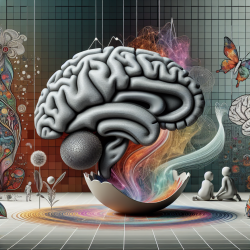The Transformative Power of Culture on Indigenous Youth Mental Health
In a world increasingly driven by data and evidence-based practices, understanding the impact of culture on mental health, particularly among Indigenous youth, is crucial. A recent study titled "Evaluation of a longitudinal digital citizen science initiative to understand the impact of culture on Indigenous youth mental health: Findings from a quasi-experimental qualitative study" sheds light on this important topic.
Key Findings from the Study
This study, part of the Smart Indigenous Youth (SIY) initiative, explored the impact of culturally-responsive, land-based active living programs on the mental health of Indigenous youth in Saskatchewan, Canada. The findings are both enlightening and actionable for practitioners looking to improve outcomes for Indigenous youth.
Why Culture Matters
The research highlights several key themes:
- Cultural Identity: Youth expressed that cultural identity plays a significant role in their mental health, providing a sense of belonging and resilience.
- Intergenerational Knowledge Transfer: The importance of learning from Elders and passing down cultural knowledge was emphasized as a way to strengthen community bonds and individual identity.
- Connection to Land: Participating in land-based activities not only improved physical health but also emotional and spiritual well-being.
Implementing the Findings
For practitioners, these findings underscore the importance of integrating culturally-responsive programs into mental health interventions. Here are some actionable steps:
- Incorporate Cultural Activities: Schools and therapy programs should include cultural activities such as ceremonies, traditional games, and language lessons.
- Engage Elders and Knowledge Keepers: Involve community Elders in programs to facilitate intergenerational knowledge transfer and cultural learning.
- Promote Land-Based Learning: Encourage activities that connect youth with the land, fostering a deeper understanding of their cultural heritage and its impact on mental health.
Encouraging Further Research
While this study provides valuable insights, it also opens the door for further research. Practitioners are encouraged to explore the long-term impacts of culturally-responsive interventions and to develop innovative approaches that incorporate digital tools for real-time engagement.
To read the original research paper, please follow this link: Evaluation of a longitudinal digital citizen science initiative to understand the impact of culture on Indigenous youth mental health: Findings from a quasi-experimental qualitative study.










